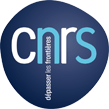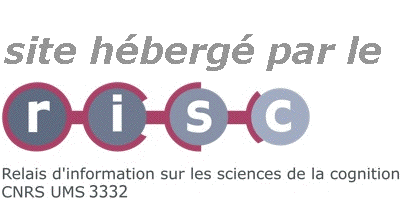apprentissage apprentissages article de synthèse auditions cognition curriculas école education education 2020 fiche variable formation formation des adultes france gt1 gt2 gt3 gt4 ict neurosciences pilotage projet prospective rapport recherche scénario sciences cognitives sociologie symposium tice travail
Après un peu plus d'un an sur la prospective en matière d'apprentissages, d'éducation et de formation à l'échéance 2030, le projet Prea2k30 a commencé à produire des conclusions.
D'ores et déjà sont disponibles :
- Les fiches variables
- Les scénarios
Le 5 avril, Conférence de Bruno della Chiesa, dans le cadre du Colloquium du Département d'Etudes Cognitives (29, rue d'Ulm - 75005) 12h00-13h30 Salle Langevin (1er étage gauche)
Title: How many brains does it take to build a new light? Lessons from a Transdisciplinary Project
Bruno della Chiesa will discuss the results of the long-term Brain and Learning project (OECD-CERI), and namely the ethical, political, pragmatic issues that are connected to the effort of joining cognitives and neuroscience research, on the one side, and educaiton, on the other. The discussion will pave the way to a better understanding of how the Mind, Brain & Education domain can and should develop in the next years.
29 mars 2011 Conférence de Usha Goswami, Professor of Education, Director, Centre for Neuroscience in Education Fellow, St John's College, Cambridge dans le cadre du Colloquium du Département d'Etudes Cognitives (29, rue d'Ulm - 75005)
12h00-13h30 Salle Langevin (1er étage gauche)Title: Brain Science and Education: A Cognitive Perspective
Abstract: Linking neuroscience to education is a long-term enterprise which could have a high pay-off in terms of understanding causal developmental mechanisms. An essential foundation for this new field is for high-quality basic research, informed by current understanding of developmental and educational processes. Neuroscience is showing us how information is coded and transmitted in the brain and thereby offers a novel perspective on cognitive development. Coding mechanisms are best studied in terms of the child’s sensory systems. The infant builds cognitive systems from sensory foundations, and these cognitive systems are then developed by education. In this talk, I will give an overview of the current field and suggest a possible conceptual framework for developing educational neuroscience. I will also provide a specific example of using such a framework via my research into literacy acquisition and dyslexia.
Goswami, U (2009). Mind, brain, and literacy:
biomarkers as usable knowledge for education. Mind, Brain, and
Education, 3, 3, 176-184.
Szucs, D. & Goswami, U. (2007). Educational
Neuroscience: Defining a new discipline for the study of mental
representations. Mind, Brain and Education, 1(3), 114-127.
Richardson, U., Thomson, J., Scott, S.K., & Goswami, U.
(2004). Auditory Processing Skills and Phonological Representation in
Dyslexic Children. Dyslexia, 10, 215-233.
Dans le cadre du cycle de séminaires DESIGN EDUCATION, le Groupe Compas et Cap Digital avec la collaboration de Microsoft-Partenariat Education ont le plaisir de vous inviter à une
conférence exceptionnelle sur le thème
« Mobility and Modularity: The end of the classroom pattern? »(en anglais)
Intervenants:
John Traxler, professeur de Mobile Learning à l’Université de Wolverhampton et fondateur de l’Association Internationale du Mobile Learning. Au cours de sa carrière, il a mené des projets aussi bien en Europe que dans les pays du Sud, notamment en Afrique. Sa vision globale et généraliste fournira une entrée en matière afin d’appréhender un phénomène qui influe aujourd’hui sur nos rapports à la société et à la connaissance.
Ronald Lenz, directeur du “Urban Reality Lab”, au Waag Society, un laboratoire de recherche expérimentale qui étudie l’impact des technologies mobiles sur nos mouvements et nos interactions avec les lieux et les personnes au sein de la ville. Son intervention est celle de l’ingénieur-innovateur qui applique les technologies mobiles sur le terrain, dans la rue ou appliqué à l’apprentissage scolaire.
Mercredi 16 mars de 16h à 18h
Salle de conférence Prairie, Microsoft*
La conférence sera suivie d'un cocktail jusqu'à 19h00
Nous vous invitons à vous inscrire dès maintenant sur le site suivant: https://spreadsheets.google.com/ccc?key=0ApPvHfTBaVKydFAwVmt3MktYWE9zcGNIbDFDV3djSkE&hl=fr
Cultures : médias, information et informatique : Une vision prospective
Salle des conférences, Pavillon des Jardins, École Normale Supérieure de Cachan
PROGRAMME PRÉVISIONNEL
Vendredi 18 mars 2011 (16h30 - 19h00)
Introduction : Divina Frau-Meigs (Sorbonne nouvelle), Éric Delamotte (Rouen), Éric Bruillard (ENS Cachan)
Table ronde Avec : Antoine Petit (INRIA), Jean-Michel Salaün (Université de Montréal), Thérèse Laferrière (Université Laval, Québec)
Samedi 19 mars 2011 (9h30 - 16h30)
9:00-10:30 : Jean-Louis Martinand (ENS Cachan) Culture technique
Présentation et discussion des critères d'évaluation de l'éducation aux médias et à l'information dans le monde : des outils de diagnostic pour les différents partenaires (Testing and discussing criteria to assess media and information literacy in the world: diagnostic tools for various stake-holders)
11:00-12:30 : Jesus Lau (Université Veracruzana, Mexique) Les indicateurs de l’éducation à l’information dans le monde (Information literacy indicators in the world)
13:30-15:00 : Emily Norman, Kristian Pedersen (Danish Technological Institute, Danemark, Danemark)vLes indicateurs d'éducation aux médias en Europe (media literacy indicators in Europe)
15 :00-16 :00 : Discussion générale autour des indicateurs de l’éducation aux médias, à l’information et à l’informatique
16 :00 : Bilan de la journée avec Thérèse Laferrière et Jean-Michel Salaün


